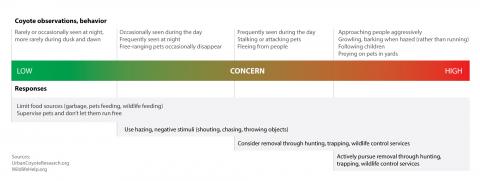Coyote Depredation Order
Landowners or their agent(s) are authorized to use deadly force on the landowner's property to take coyotes when there is an imminent threat of injury to humans, livestock, or domestic animals, or where coyotes are in the act of causing such injury. Please reference the Coyote Depredation Order for conditions. http://www.dnrec.delaware.gov/fw/Hunting/Documents/Statewide%20Depredation%20Order%2001092014.pdf

